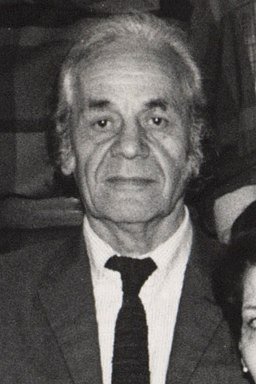Nicanor Parra, in memoriam (1914-2018)
Photo: CC BY 3.0 CL
Hoy es un día azul primavera Creo que moriré de poesía, De esa famosa joven melancólica No recuerdo ni el nombre que tenía. Sólo sé que pasó por este mundo Como una paloma fugitiva: La olvidé sin quererlo, lentamente, Como todas las cosas de la vida.
On 23 January the death of one of the legends of Latin American literature was announced: Nicanor Parra (1914-2018, Chile), poet, physicist, mathematician and academic. Over the course of his life he received countless acknowledgements for his literary work, including the Cervantes Prize 2011, in addition to having been nominated for the Nobel Prize for literature on several occasions.
Among his vast oeuvre is the book Poemas y antipoemas (Poems and anti-poems), a result of his studies at the University of Oxford, the timely reading of the works of Shakespeare and Newton; a work that changed the course of Latin American literature and laid the foundation for what he called ‘anti-poetry’.
The literary critic Harold Bloom once said, “Parra returns us to an individuality concerned about itself and others (…) Parra is, unquestionably, one of the best poets of the West.”
Read his full biography and bibliography here.
In 1966, during the presidency of Arthur Millar, Nicanor Parra attended PEN International Congress in New York, where he spoke on a panel discussing the role of the writer in Latin America with Pablo Neruda, Mario Vargas Llosa, Victoria Ocampo, Haroldo de Campos and Marco Antonio Montes de Oca. This event was crucial for the United States to welcome the Latin-American in full expansion at the time.
In the following link you can access one of Nicanor Parra’s public lectures, along with those of other writers, given at PEN’s Congress.
Nicanor Parra was a crucial voice the revitalization of PEN Chile in 2014, supporting PEN President John Ralston Saul and Antonio Skármeta in their joint effort to rebuild a meaningful and very vocal PEN centre in Chile.
For PEN International, the death of Nicanor Parra is a great loss to global literature.

